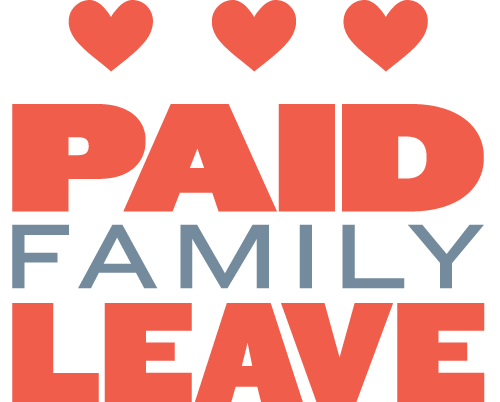Lauren Kunis, DC Paid Family Leave Campaign Volunteer Leader
Originally posted on Huffington Post, here.
This year’s presidential election cycle has been awash in statements, accusations, and policy prescriptions most of us never thought we’d hear on the national stage. But buried among some of the more sensational sound bites is another previously-unthinkable shift: the bipartisan recognition that America finds itself in a caregiving crisis, and that government has a responsibility to help people who work better reconcile work and family responsibilities.
Both the Clinton and Trump campaigns have offered policy proposals to provide paid family leave to workers, although they differ sharply in terms of the details. Mayor Bowser is proudly #withher, and once again reaffirmed this at the opening of the DC for Hillary office opening last week. But given the opportunity to be at the forefront of a growing movement that is a centerpiece of the Clinton presidential bid—the movement for paid, gender-neutral, and job-protected family leave—Mayor Bowser is dragging her feet.
The D.C. Council is currently considering a cutting-edge, comprehensive paid leave policy. Exactly one year ago today, seven of the 13 Councilmembers introduced theUniversal Paid Leave Act, which would provide up to 16 weeks of paid, job-protected leave for any D.C. resident to fulfill urgent caretaking needs, such as tending to oneself or a family member recovering after a major medical operation or welcoming a newly-born or adopted baby. It would operate through a newly-created insurance program financed by a payroll tax of no more than 1 percent. The Bill appears to have the support of a majority of councilmembers and polling shows that 80% of District residents support the bill.
Hillary Clinton explicitly endorsed the D.C. Council’s insurance plan in May. TheDemocratic party platform cites the importance of paid family and medical leave. But Mayor Bowser has yet to signal her support for any paid leave plans; by contrast, senior staff from her administration testified against the Universal Paid Leave Act in January. This hurts the people of the District, her constituents. Only 13 percent of employees nationwide have access to paid family leave and only 40 percent have access to paid medical leave. Unpaid family or medical leave is financially out of reach for 58% of District families, including 66% of black families and 81% of Latino families.
Research shows that access to paid leave is associated with economic benefits such as greater employee retention (which reduces costs associated with turnover); improved employee morale, health, and well-being; stronger labor force attachment (people staying employed), greater family income stability, and reduced dependence on public assistance programs. Recognizing the multifaceted benefits of paid family leave, just this morning big business associations in D.C. presented an employer-funded mandate plan to establish paid leave for the D.C. workforce. Even the business lobby recognizes the urgent need to respond our nation’s caregiving crisis, something that was previously unthinkable.
Paid leave could be the first in a series of new policies that help us all better manage the dual—and sometimes conflicting—responsibilities of earning a living and caring for ourselves and our families. It would lift up caregiving, bolster vulnerable workers’ labor force participation by providing a much-needed safety net, and foster economic growth. The D.C. bill would establish positive precedents for gender equality in parenting and caretaking responsibilities in the District, and it’s a crucial part of the “pathway to the middle class” that Mayor Bowser often speaks about. As a Democrat, a Clinton supporter, a progressive, and as an elected leader beholden to her constituents, it is a shame for her to be sitting on the sidelines.


